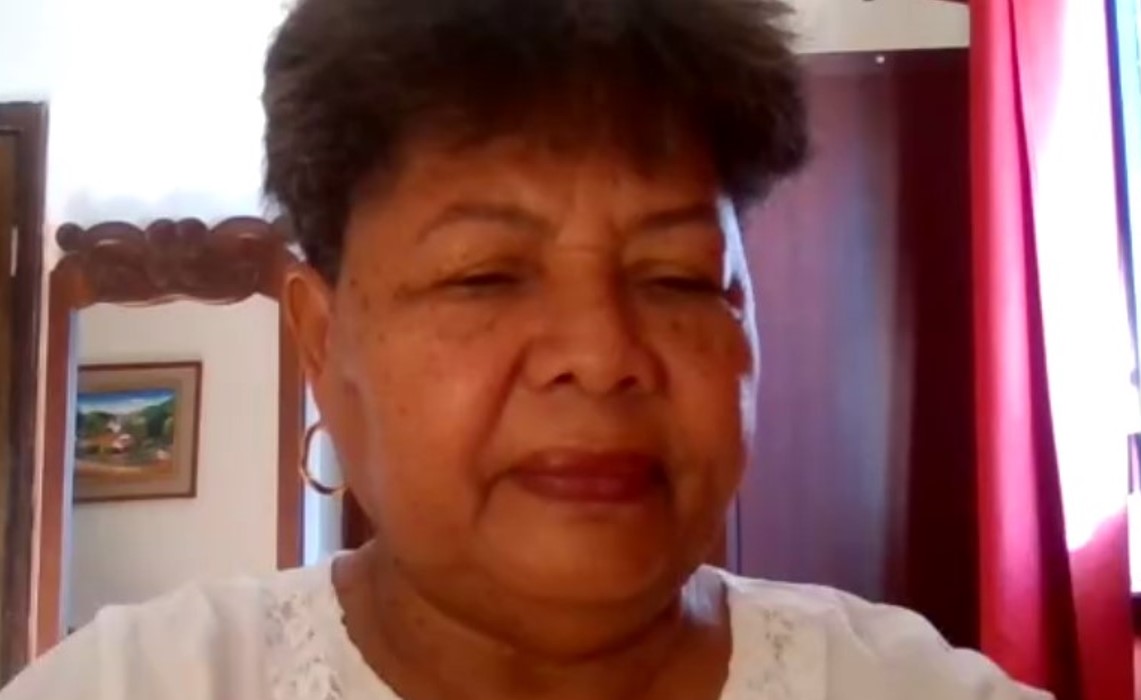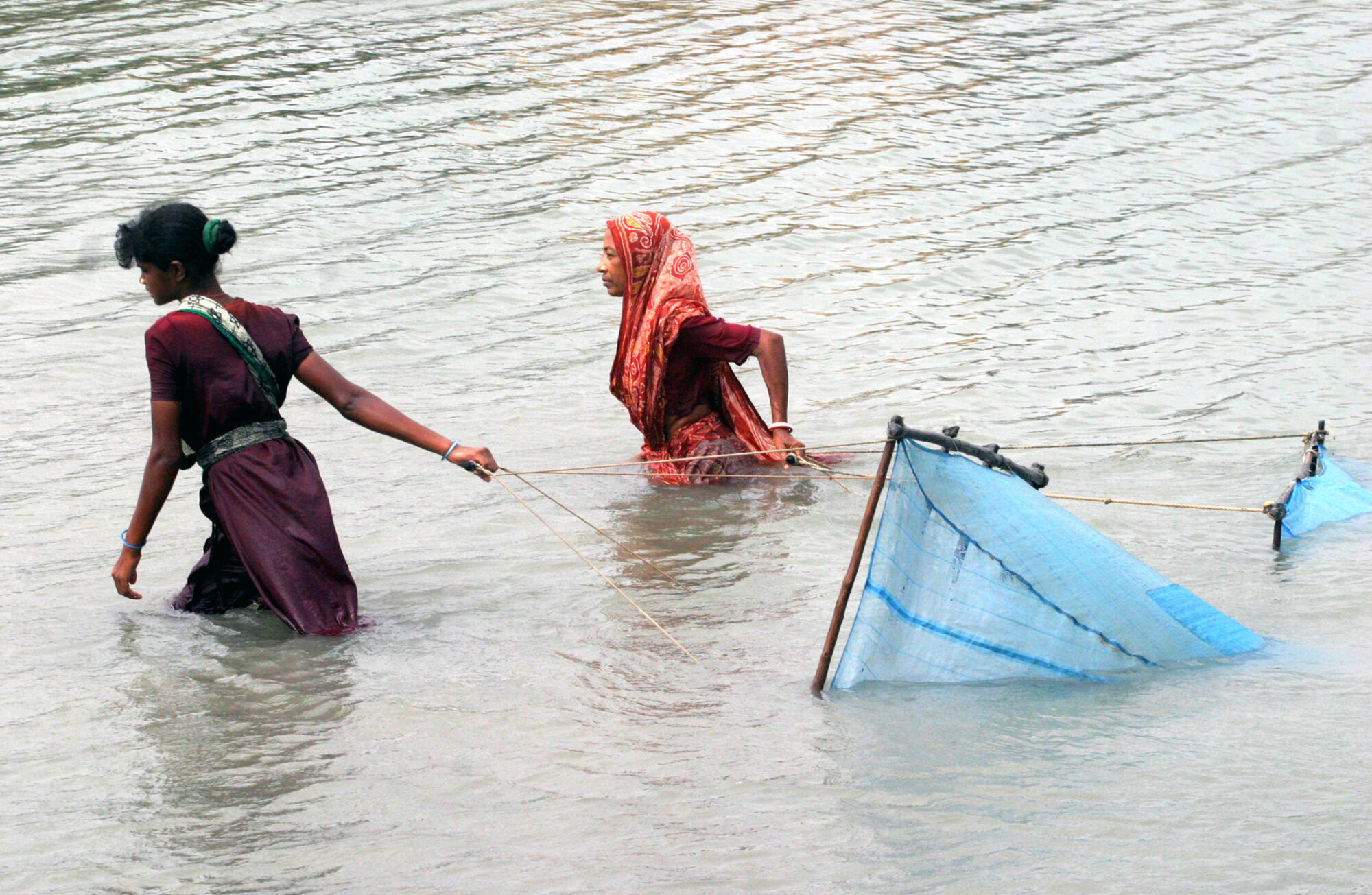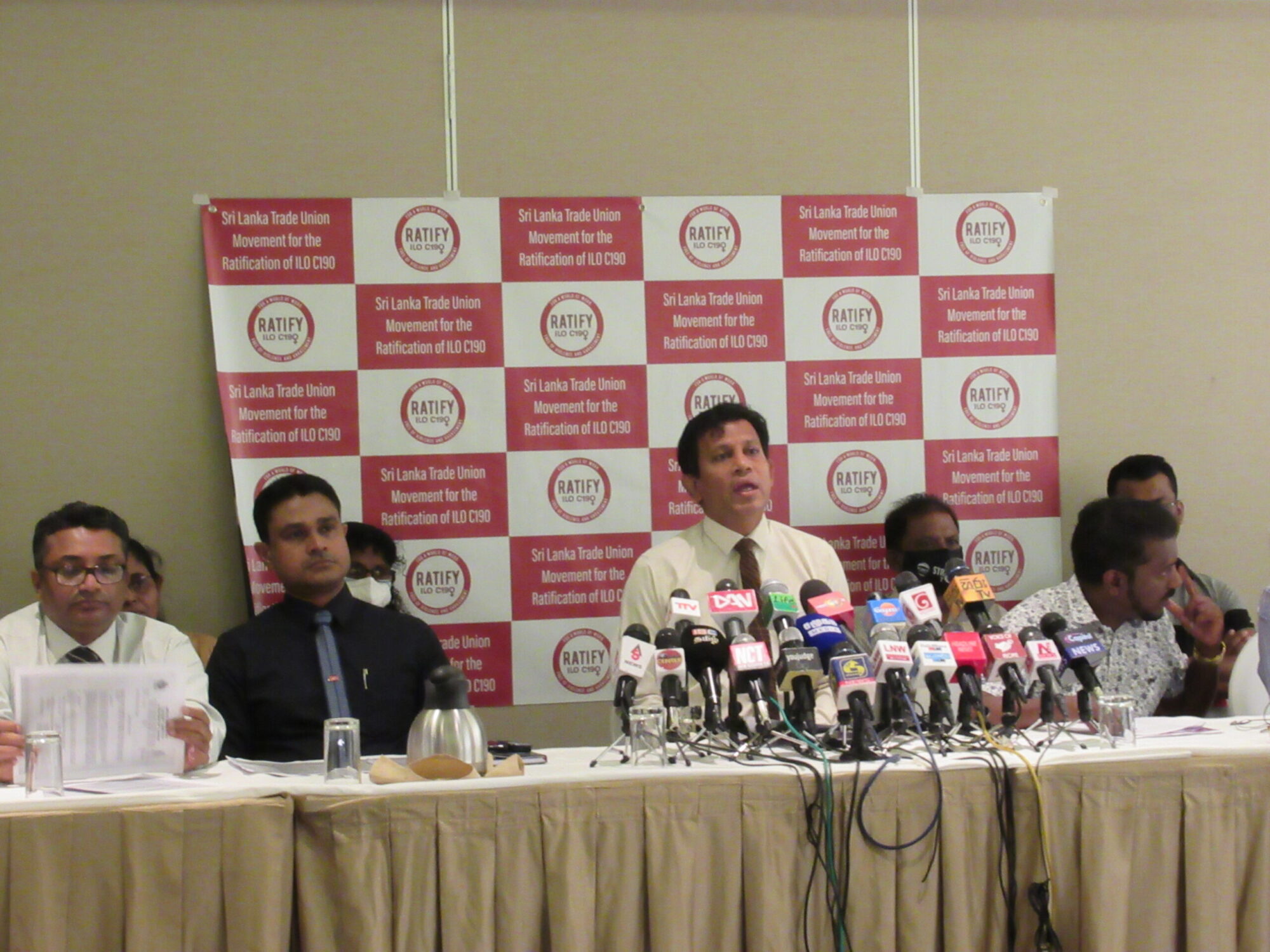Brazil and Honduras Solidarity Center partners raised union women’s voices in three civil society sessions of the UN Commission on the Status of Women last week, focusing on issues including femicide in the world of work, climate change as a root cause of migration...
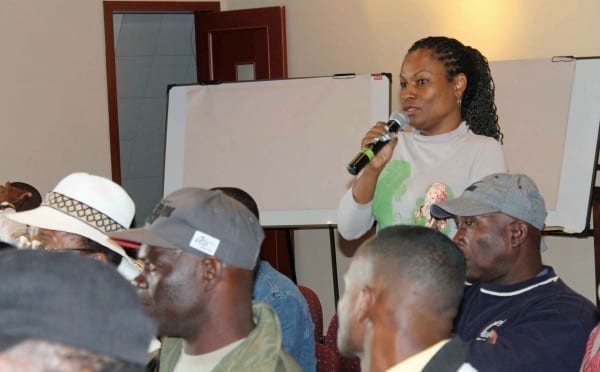
The Solidarity Center supported the development of the Afro-Colombian Labor Council, the first national organization in Colombia dedicated to improving the working conditions of Afro-descendants. Credit: Solidarity Center/Rhett Doumitt
The Solidarity Center engages with unions and their allies through an analysis and practice of equality, radical inclusion and intersectionality that is explicitly feminist, anti-racist, pro-equality, pro-worker, pro-migrant and class conscious.
The Solidarity Center designs and implements strategies to confront the multiple and intersecting forms of oppression that contribute to economic structures in which women and other groups of workers are devalued and excluded from economic and social equality. This requires a conscious effort to examine how oppressive forces play out throughout the global labor movement with a commitment to dismantle these systems. Explicit in this work is the understanding that the agency and leadership of the most marginalized workers are key components of decent work and economic justice for all.
The Solidarity Center has assisted unions and their allies in countries such as Cambodia, Colombia, Georgia, Honduras, Indonesia, Kyrgyzstan, Morocco, Nigeria, Nicaragua, South Africa and Tunisia to ensure meaningful participation of historically excluded and marginalized workers in unions and other democratic structures.
See related factsheets, videos and reports.
In Morocco, the Solidarity Center supported a multi-year effort to build women worker power and gender equality which led to the inclusion of women workers during negotiations for the first collective bargaining agreement in the informal agriculture sector. In Colombia, the Solidarity Center supported the development of the first national organization dedicated to improving the working conditions of Afro-Colombians.
In Kyrgyzstan, Morocco and Tunisia, Solidarity Center is assisting in strengthening union efforts to promote inclusion of individuals with disabilities. In Nicaragua, Solidarity Center supports domestic workers as they address inclusion of LGBTQI union members to ensure they can represent themselves, articulate their priorities and increase their leadership opportunities and visibility.
The Solidarity Center:
- Conducts research and awareness-raising to challenge systems of oppression and inform inclusive approaches to building worker power across social identities at all levels
- Supports representative, inclusive leadership in our partner organizations
- Engages in cross-movement work to combat tools of oppression that impact women, including gender-based violence and harassment at work
- Brings together unions and community groups to identify shared socioeconomic struggles, analyzes how those struggles are linked to systemic racism and implements organizing, legal and advocacy strategies to collectively overcome the oppression that entraps workers in poverty
- Advocates for economic policies that uproot systemic discrimination and exploitation in labor markets.
Labor Leaders, Activists: Women Workers Critical in Driving Inclusive Climate Solutions
Climate change and environmental degradation have exacerbated gender inequality and worsened existing inequities resulting from resource scarcity, conflict and climate-related shocks. Women workers—particularly those in the informal economy—bear significant burdens...
Sri Lanka Unions Step Up Push for Ratification of Gender Violence at Work Treaty
Unions in Sri Lanka are urging the government to follow through with its promise to ratify a global treaty to end gender-based violence and harassment in the world of work by March 2022. The Sri Lanka Trade Union Movement for the Ratification of ILO C190 in Sri Lanka,...
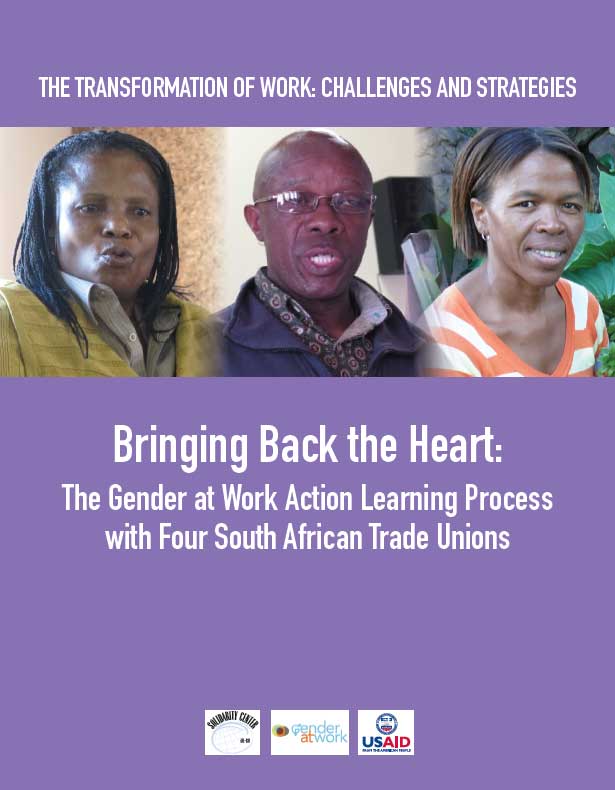
Bringing Back the Heart: The Gender at Work Action Learning Process with Four South African Unions (2013)
Four South African unions took part in a unique process with the South Africa Gender Action Learning Program and Labour Research Service to challenge male–dominated, hierarchical cultures. This report describes the step-by-step journey that led to more women joining...
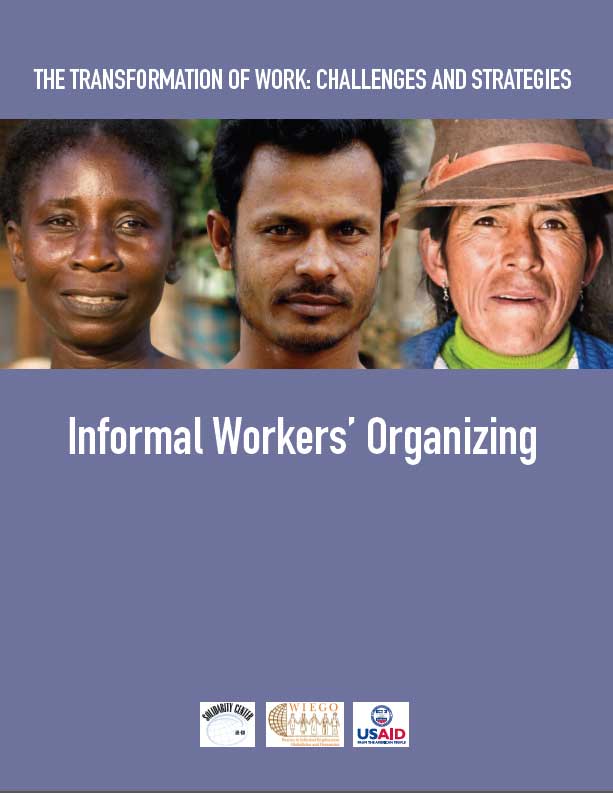
Informal Workers’ Organizing (WIEGO, 2013)
In overviewing self-organizing among such informal economy workers as waste pickers, domestic workers and construction workers, this report finds the lines are increasingly blurred between jobs in the formal and informal economies. This Solidarity Center report is...
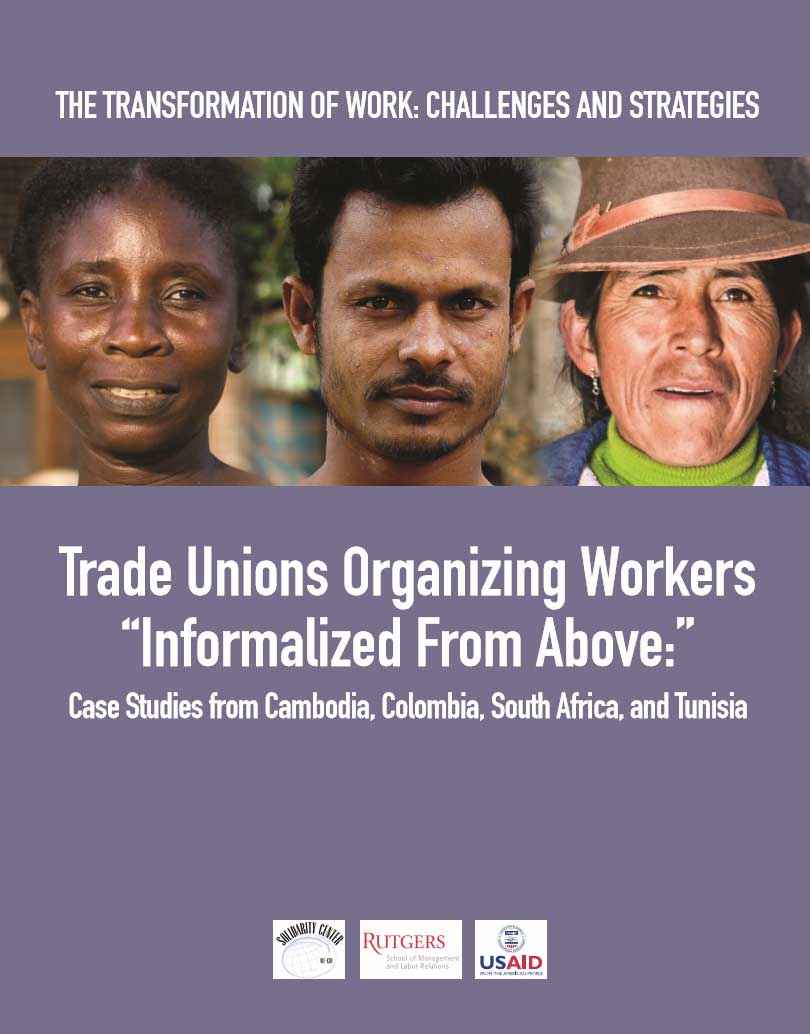
Trade Unions Organizing Workers “Informalized from Above”: Case Studies from Cambodia, Colombia, South Africa and Tunisia (Rutgers, 2013)
Four case studies examine successful union organizing among workers whose jobs have been privatized, outsourced or contracted out. This Solidarity Center report is part of a multiyear research project, funded by the U.S. Agency forInternational Development, to study...
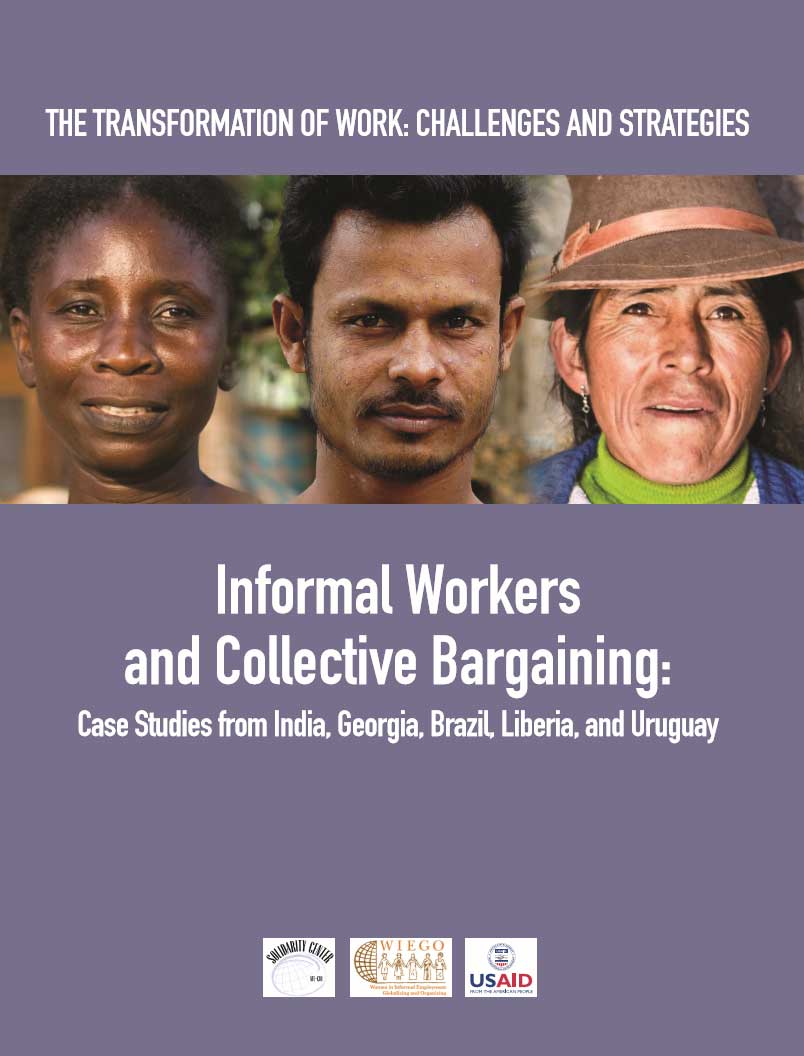
Informal Workers and Collective Bargaining: Case Studies from India, Georgia, Brazil, Liberia and Uruguay (WIEGO, 2013)
This report details a set of case studies on collective bargaining by informal workers in four different countries: Waste pickers in Minas Gerais state in Brazil, beedi workers in India, Georgia minibus taxi workers and street vendors in Monrovia, Liberia. The study...
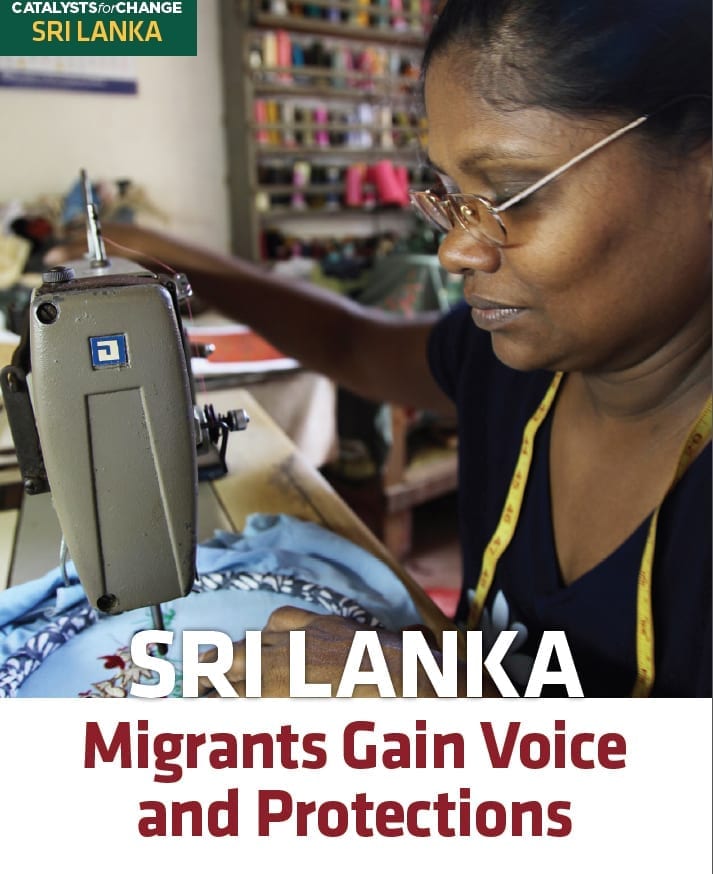
SRI LANKA: Migrants Gain Voice and Protections (2013)
The Migrant Services Center, a Solidarity Center partner, is assisting migrant workers and their families in Sri Lanka while championing structural change through legislative and governmental processes, and offers a model for other labor and worker rights...
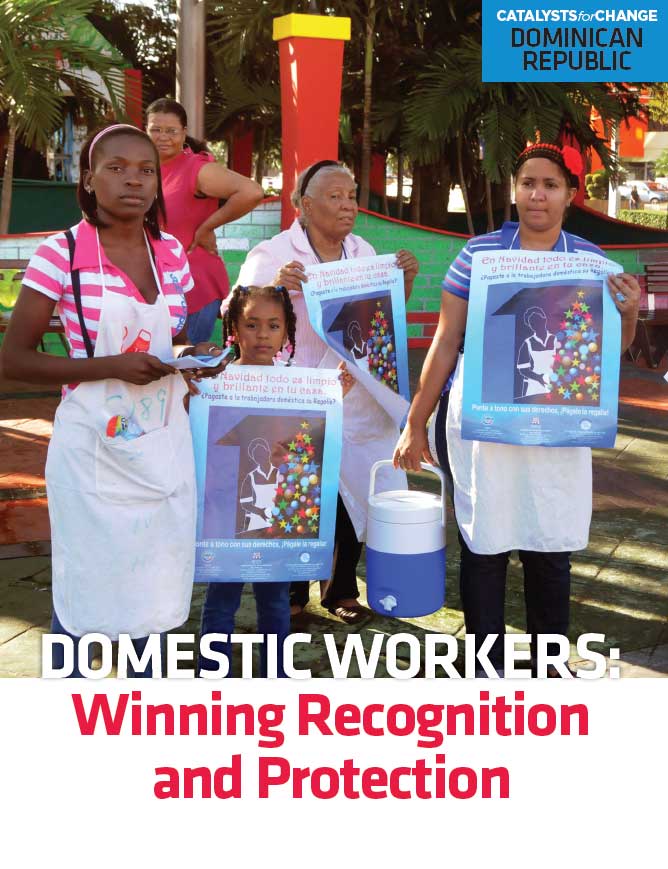
DOMESTIC WORKERS: Winning Recognition and Protection (2013)
Many domestic workers around the world are vulnerable to exploitation and not recognized by national labor laws. But in the Dominican Republic, domestic workers have campaigned to make gains over the last two decades—and a new Solidarity Center report shows how....

